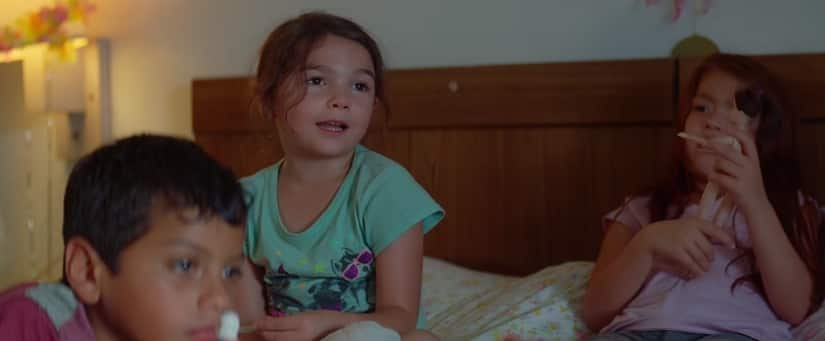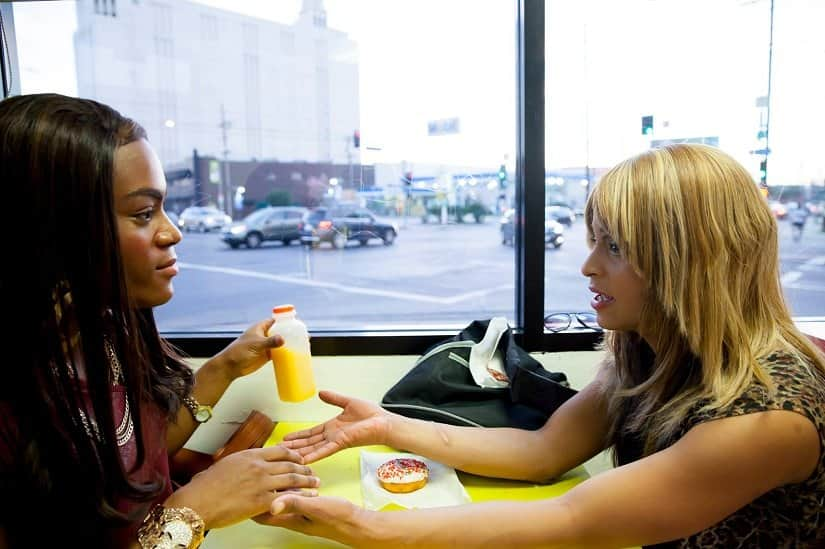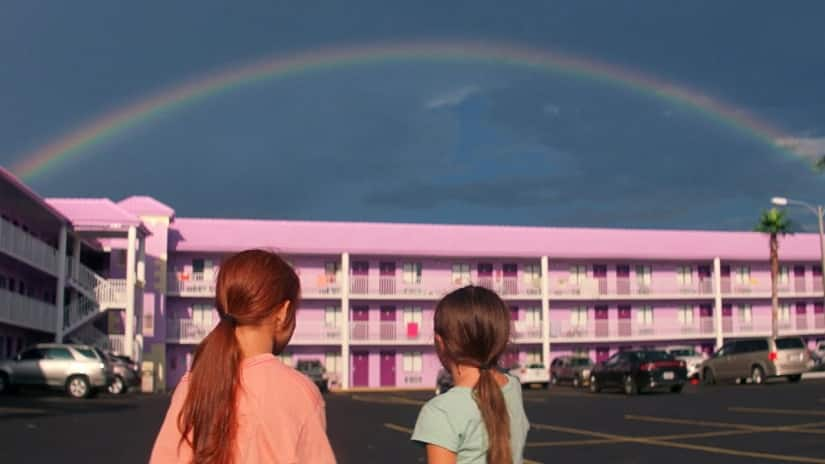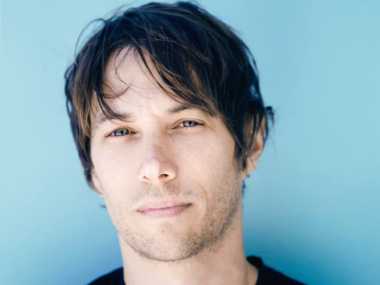Sean Baker, the director of critically acclaimed independent films such as The Florida Project and Tangerine, has been called the ‘ socially conscious voice in Hollywood’, a filmmaker with his ‘own brand of neo-realism’ and a creator of sensitive art. His narratives are complex and layered, but his thoughts about his own process and principles are contrastingly simple and straightforward, I found. Take for example his views on whether he is part of mainstream Hollywood. “I live in West Hollywood, but I have such few connections to it that I question why I live there sometimes. At the same time, the industry has changed so much. If you look at films that are winning Academy Awards, they’re mostly independent films. Hollywood is not just studios anymore. I do feel I am part of the system, to a certain degree. But I don’t think I could work within the studio system because I would not have the final cut,” he said to Firstpost during a visit in Mumbai. A masterclass with Baker was held at the 20th edition of the MAMI film fest, where he was in conversation with director Shakun Batra. His films have centred on undocumented West Africans in Manhattan (Prince of Broadway), trans sex workers (Tangerine) and ‘hidden’ homelessness (The Florida Project) — among other human interest stories. Batra jokingly asked if he would make a shift to mainstream Hollywood fare, now that he has established himself, and Baker was quite prompt in denying that possibility. “It took me long to break into the scene, and I am happy with the work I am doing now, telling stories that matter. I’m also lucky to have financiers who will support these films. But at the same time, I’m a cinephile, so I do enjoy all sorts of movies,” he said. [caption id=“attachment_5493441” align=“alignnone” width=“825”]  A still from The Florida Project. Youtube[/caption] By the end of high school, he knew he wanted to be a filmmaker, and his major influences were Hollywood blockbusters (think Die Hard). Later, when he was introduced to Spike Lee and Jim Jarmusch’s works, he noticed that something different could be done in terms of stories and aesthetics. “After getting into film school, I was exposed to retrospective theatre, the movies available at video stores, and art house cinema in Manhattan — this constituted my education. I also began exploring film movements like Italian neorealism thereon,” he recounted. Baker asserts that though his films are political, they are not overtly so. “They’re not political in the way that a documentary would be.
I’m still conscious of the fact that this art form started as entertainment, and it primarily is entertainment. It’s for people to lose themselves in.
I’m always trying to have the best of both worlds — to entertain and shed light on a subject,” he said. Baker also consciously inserts humour into his plots and dialogues. “Humour is part of being human, it is how we cope. Watching Maya and Kiki talk (the actresses who play trans sex workers in Tangerine) was like watching stand-up comedy. The stories they told were tragic, but they were delivered with a smile and laugh. I don’t want to hit the audience with statistics and information. My aim is to create identifiable characters who inspire you to think further about the issues depicted in the film. One way to to that is to make the audience laugh with the characters.” Much of the stories Baker depicts begin with and are rooted in locations. “Take Out (about an undocumented Chinese immigrant working as a deliveryman) and Prince of Broadway are ‘New York films.’” But he soon realised the drawback of taking a microscopic look at spaces. “The writer of Take Out and I realised that it was too specific for readers to identify with it. I decided that after this, I would tell universal stories about microcosmic worlds. This helps to generate empathy for the characters.” [caption id=“attachment_5493451” align=“alignnone” width=“825”]  Kitana Kiki Rodriguez and Mya Taylor in Tangerine. Youtube[/caption] A considerable amount of time goes into the research of each film he makes. While Take Out took nine months, Prince of Broadway took longer, especially because of the time needed to break into its world. He explored a part of Manhattan which remains undocumented despite being chaotic and lively. “When we would speak to the undocumented West Africans, they’d think that we were from the police or immigration. We had to gain their trust.” During Take Out, he lived above a Chinese restaurant, and spoke to the undocumented workers about their plight. Willem Defoe’s character in The Florida Project is inspired by a motel manager that Baker met when he was scouting for locations. Casting is everything, especially in a character-driven film, says Baker. In his films, he has cast first-timers, established actors and non-actors. He says this combination of cast members works because of what they gain out of interacting with each other — the inexperienced actors learn about having a routine, and the established ones begin to be more candid and less tied down by rules. In fact, he says found he found Bria Vinaite on Instagram and cast her after watching her videos. Baker’s films have often been described as ‘DIY projects’ because he is involved in several of the processes, including editing, which he terms the “third stage of writing”. “I can rewrite the film during the edit.” This, he says, is the hardest part of his job. “People say that the time between films, when you go through self-doubt about when the next idea will come to you, is the hardest phase of your career. But for me, it is post-production.” He speaks about “finding the film” on shoot — determining what keeps the audience hooked, fleshing out supporting character’s lives, and other processes. He says this luxury is often not afforded when a director works with a studio. Amidst making these last-minute changes, it is important to ensure the entire crew is on the same page, Baker says. “People thought I was crazy and rogue when I was shooting The Florida Project, and I had to speak to them.” He spoke of one particular change in TFP’s schedule: One day when they were shooting at the motel which was the set, a rainbow appeared in the sky. They were to shoot another scene with a rainbow in the backdrop at a different location, which would need CGI. Upon seeing the rainbow, Baker decided to shoot that particular scene at the motel itself, which meant that the equipment needed to move and the actors had to change their clothes within minutes — and they did. The result was that the money that would otherwise be spent on CGI was saved. [caption id=“attachment_5493431” align=“alignnone” width=“825”]  A still from The Florida Project. Youtube[/caption] Shakun Batra remarked that though Baker’s films do not follow the traditional three-act structure, they still command the attention of the audience. Baker credits this to the relationship he has with his screenwriter, Chris Bergoch, who is his frequent collaborator. “Bergoch and my sensibilities are very different, but I like his. He is heavily inspired by Steven Spielberg and Disney, while I would prefer a Tarkovsky work where there is close to no dialogue. We meet somewhere in the middle. Bergoch also brings with him aspects like the three-act structure, which I sometimes need… This structure has been used so much that the audience can predict the outcomes of films now. I make films that are slices-of-life, that are character studies, for which the structure may not be best suited.” He said that the most progressive, sophisticated storytelling today breaks away from convention. He’s also a big campaigner for the need to use and preserve film. He used the iPhone to shoot Tangerine, but given the choice and budget, he says he’d always opt for film as a medium. “We live in a time when the threat of celluloid dying out is real. There’s a quality in film that cannot be matched in digital. There’s also the whole preservation aspect of it, especially for independent films, which don’t have the infrastructure. It is purely for monetary reasons that we made the switch from film to digital. I do support filmmakers who choose a medium like the iPhone for aesthetic reasons or because they don’t have the budget. But if you have the power and resources to shoot on film, you should, because you’re helping keep the medium alive,” he says. The Florida Project has been his most expensive film thus far, but Baker doesn’t hope for extravagant budgets in the future. “There’s a lot of wastage in the industry, and it seems inappropriate to splurge, especially if I’m making a movie about poor people or the marginalised.” How then does he measure success? The director says that apart from reviews and establishing a connect with the audience, what matters to him is his ability to have an impact with regard to the message he tried to send across in a particular film. It also has to do with the different ways that a film can transform the lives of its cast and crew. “For me the biggest success of TFP is not Willem Defoe’s Oscar nomination, it’s the fact that one of the child actors got a scholarship,” he said. There’s also the desire for wider releases (which Baker says can sometimes be due to bigger budgets); he believes that his films can be small and intimate but still have “scale and importance”. There’s also the question of Oscar nominations and wins. At the last edition of the awards, it surprised many that The Florida Project did not feature in the ‘Best Film’ category, but this doesn’t seem to bother the director much. Baker is not hesitant to admit his privilege by virtue of being a white cis straight man. Is he ever worried about his own biases seeping into the storytelling? “Yes, and one has to battle against it. You have to get to a place where you feel comfortable enough to write the screenplay. I absorb as much information and immerse myself as much is possible. I don’t write the plot o screenplay until I’ve spoken to the community and heard their voices. It’s simple — it’s about treating someone as an equal, as you would treat yourself,” he says.


)
)
)
)
)
)
)
)
)



